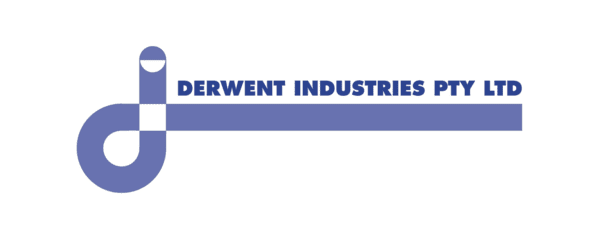Derwent Industries is a family run business with a deep history in manufacturing that dates back to 1963. Originally founded by Doug and Dianne Evans, sons Craig and Stuart are now working in the business. Yet its history reaches further back with the manufacturing facility in Tasmania (Hobart) dating back to 1840.
Manufacturing facilities are also based in Victoria (Bendigo and Wodonga) and New Zealand (Auckland), with distribution centres in Sydney and Melbourne.
The businesses origins were founded from the irrigation industry, and today is set to become a market leader in advanced metal manufacturing. Already a key player in major Australian infrastructure projects across water and mining, and supplier to rail, military and general industry, Derwent Industry provides a broad range of products such as stainless steel clamps, couplings, fittings, valves and ground engaging tools.
As a supplier to major infrastructure projects, CEO Craig Evans, explains the criticality of onshore manufacturing: “With major infrastructure such as water, if you can’t get a product in time, then the supply of water stops. It gets desperate pretty quickly given the impact on the community. Now, we can make these products in Australia and get a balance between security of supply that doesn’t affect the cost of supply.”
As a highly automated facility with market-leading robotics and automated equipment, Derwent Industries’ Wodonga facility can supply a product in emergency situations within six hours. This is only made possible because of their foresight to invest in onshore proprietary processes and advanced robotics. . Additionally, the business is manufacturing its products at globally competitive pricing, enabling the opportunity to expand exports.
Co-Head of Investment, Patrick Verlaine explains the importance of the work Derwent Industries is doing: “A healthy manufacturing sector in Australia is not only good for business, it’s also good for employment, research and development, and exports. Derwent Industries has a deep and rich history in developing and evolving the manufacturing industry in Australia. It’s well positioned to expand its supply of critical products to key infrastructure projects while ensuring the security and availability of supply at a competitive price.”
Photo: Doug Evans (Founder and Executive Chairman, Derwent) and Dianne Evans (Founder and Head of Finance, Derwent).
Competing on a global scale
Asked what Craig’s ambitions were for the business, his answer came quickly – to remove the need to import a product to service a critical infrastructure project. “There’s a large amount of product required in a project, and a long timeframe between placing an order and the project completion – with lots of unknown risks in between. Consequently, projects hold more stock than they need and there’s a lot of waste as products can sit for years in a warehouse or never be used. Onshoring manufacturing means projects can plan more effectively, reducing their overall costs.”
With this ambition and a growing demand for onshore sovereign manufacturing, the family-run business sought growth capital to help them scale. Now, with backing from the Australian Business Growth Fund, the multi-million dollar investment will be used to upgrade the manufacturing facilities with further robotics that will enable product line expansion and greater capacity; implementing a real-time manufacturing control system so customers can see where in the production process their order is; open distribution centres in Queensland and Western Australia; and expand exports in the Pacific Islands, South America, Asia, ASEAN (middle east, Kazakhstan, Africa)
With the expansion of operations will come a growth in regional jobs. Across Derwent Industries’ regional facilities, the workforce is expected to increase by 18% in the next three years. These will be a combination of trade roles when the product is produced manually to meet the demand for smaller production runs; and technical engineering roles to further develop, implement and operate the equipment and automation processes needed to meet the demand for large volume orders.
Setting the stage for a true partnership
When selecting a partner to invest in the business, Doug was relieved when he heard about the Australian Business Growth Fund mandate: “Finally, there is a fund that is looking to work with and alongside businesses. It’s a breath of fresh air!”
Throughout the investment process, Craig found there was a genuine desire to help and understand the business strategy. “Everything was discussed upfront, and I didn’t feel the need to be guarded with what I shared. I felt confident I could talk about the good, the bad and the ugly. And when we did talk about the ugly, there was a real desire to find ways of making it work.”
Photo: Patrick Verlaine (Co-Head of Investment, ABGF) and Craig Evans (CEO, Derwent).
